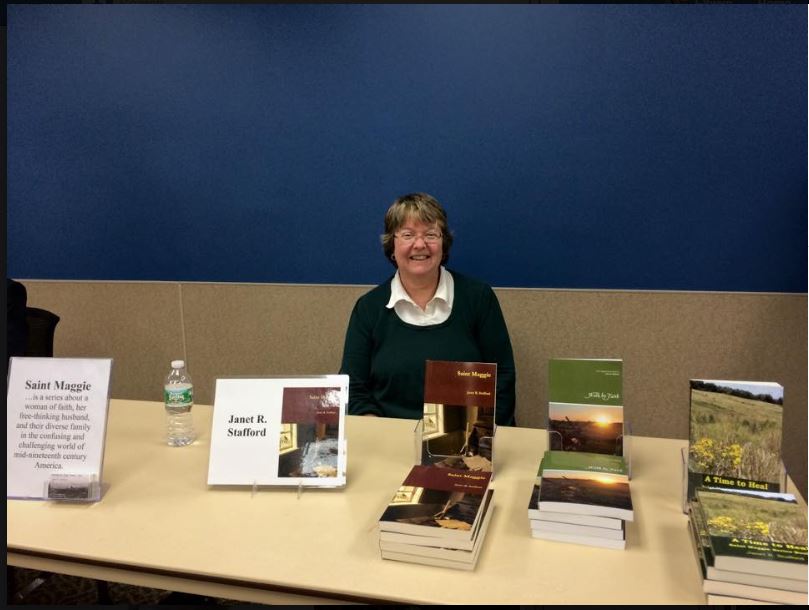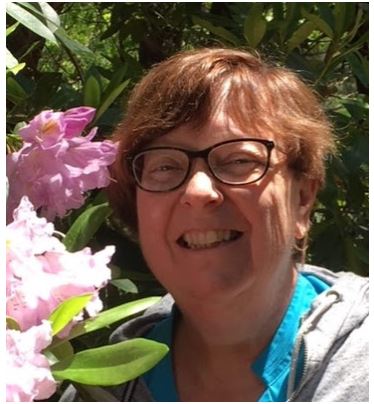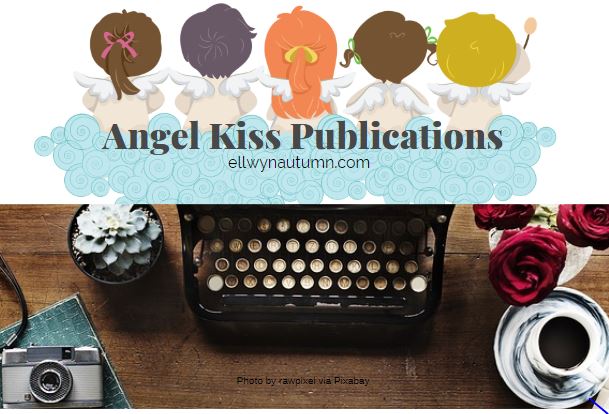
Janet and I met several years ago at a bookstore in Peddler’s Village, a quaint shopping mall in New Hope, PA.
I found Janet to be approachable and friendly; soft-spoken but a great conversationalist who measures her words before she speaks; a social trait that confirms why writing comes easily to her.
I’m confident that as you read this interview, you will recognize what an articulate and engaging person she is.
Now that you’ve been introduced to Janet, let’s get to know her a little better.
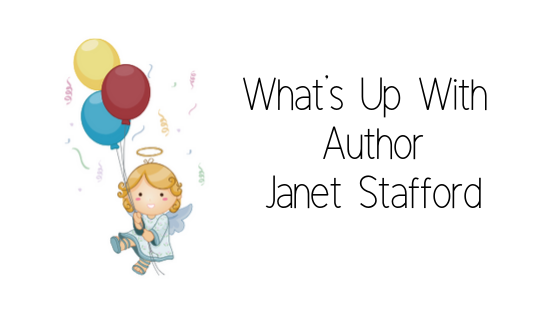
What inspired you to be a writer?
That’s a good question. My parents read to me when I was young, and I loved to hear stories. Once I could read, I devoured books. I was telling stories to other people before I could write.
When I became adept at writing, I realized I could put my stories on paper. So, it was no particular book or person that inspired me, but rather my parents instilling a love of stories in me, my imagination taking flight, and the realization I had the power to write my stories down.
Is writing your full-time profession?
No. I have a vocation as a part-time assistant minister at a United Methodist Church. I’ve been working in educational, youth, and family ministries for close to 30 years.
That said, I’d like to write full-time, since I see it as a calling, as well. Maybe that dream will come true after I “retire” from ministry.
How long have you been writing?
Since I was about 8 or 9 years old! So that means I’ve been at it 57 or 58 years. It’s really part of who I am.
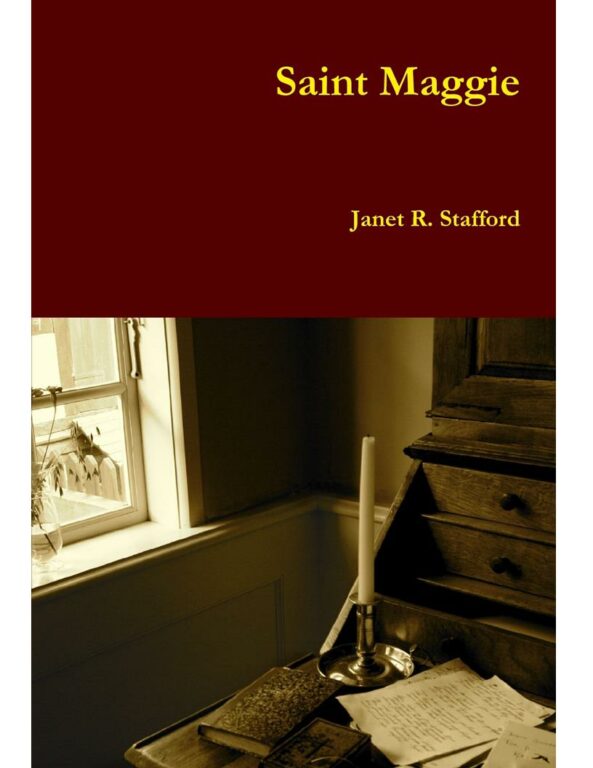
Which genres do you write?
I primarily write historical fiction. I started with one book, based on a paper I did in graduate school. The book was called Saint Maggie.
When I talked to book clubs and groups, I kept getting this question, “What happens next?” So I ended up writing a series, aptly named the Saint Maggie Series.
I also have written a contemporary romance called Heart Soul & Rock ‘n’ Roll, which was great fun and gave me a break from the 19th century.
Since I feel I’m due for another break, I want to try my hand at a Young Adult fantasy. I plan to work on it in Spring 2019. I will set it on an island in Maine. My family used to visit a relative who summered on Bailey Island, ME, and I think that would be an amazing setting for a fantasy story.
What do you find most challenging writing for these genres?
Let me address the historical fiction genre, since it has a unique rather challenge: to make a story credible, the history has to be correct.
For example, I set my novels in the 1860s, so I can’t have people using contemporary words and phrasing. I need to give the characters’ dialog the feel of nineteenth-century language.
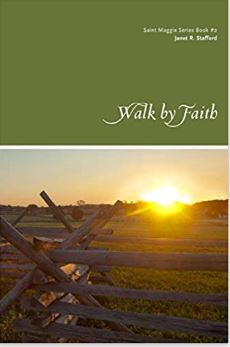
I also research everything from the big events of the era to details like recipes and how to do the laundry. The most unnerving novel for me was Walk by Faith, which is set in Gettysburg.
Everything about the battle has been researched in detail. It terrified me that I’d get something wrong and I’d get called out by a Gettysburg nerd (no insult intended here, “nerd” is a compliment).
Integrating historical data into a story is also challenging. An author can’t simply list facts and dates. The historical details need to be interesting and well-integrated into the story.
Finally, I think some people shy away from historical fiction because they don’t “like history.” But they don’t know that history really comprises people’s stories.
That’s the “story” part of “history.” (The word “history” comes from the Middle English word histore which, according to dictionary.com, means “one who knows or sees.” I think that gives history a bit of a mystical spin, don’t you?)
Anyway, it is a challenge to appeal to people who think they’ll be bored by anything even vaguely historical.
What message are you sharing in your books?
I aim to share several messages: hope, love, forgiveness, and perseverance in my books. We seem to need these things these days.
How many books have you written?
Hmm… five full-length novels, two novellas, and two short stories. I’m exhausted just writing this down.
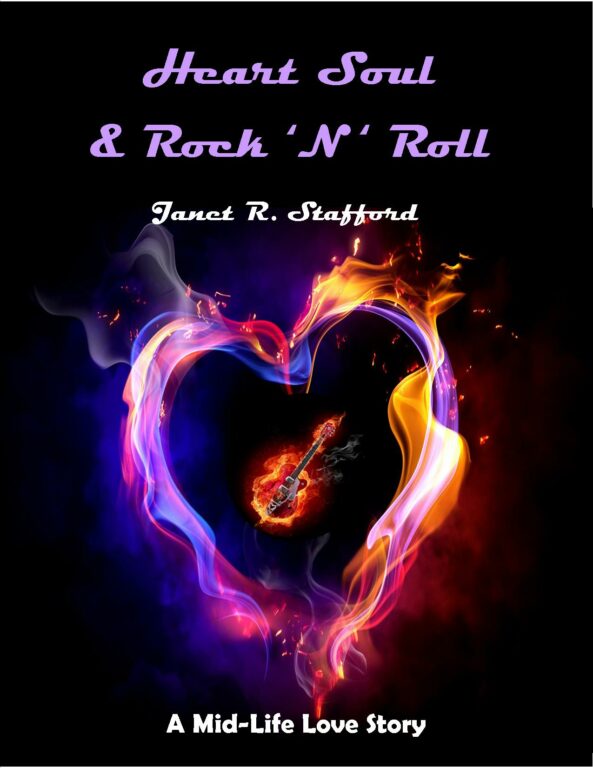
What inspires you to write?
For the Saint Maggie series, it is discovering issues that roughly parallel contemporary issues. This is not as difficult as it sounds.
I’ve come to believe many of the issues undergirding the Civil War were never resolved completely. I’ve heard it said history does not repeat itself as much as it echoes. What I hope is for readers to hear the echoes of the past that still reverberate today.
For Heart Soul & Rock ’n’ Roll, the inspiration oddly enough was feeling really burned out from ministry and asking myself the question, “If you could have your dream of a best-seller or optioning a book for a film, would you quit working at the church?”
The question led to my creating an assistant minister named Lins. She used to have a college rock band and, when she turns 40, she wants to “rock out one more time before I die,” as she puts it.
I also love rock and had her meet a guy with a messy life who fronts a bar band. They fall in love, but there are complications. (Aren’t there always? It’s a romance.)
I was pleased when a reviewer said the novel is about changing your life without changing your core self. I hadn’t thought of the story that way, but the observation makes complete sense.
Can you tell us a little about your St. Maggie Series?
Sure! The series follows Maggie Blaine Smith and her unconventional (for the 1860s) family.
When we meet her in the first book, Maggie is a widow struggling to keep her boarding house afloat. She has two teenage daughters, Lydia (the logical, focused one) and Frankie (the outspoken, impulsive one).
Her boarders, who often have trouble scraping up their rent, are not exactly “respectable.” That group comprises an old Irishman of no fixed employment, a failed writer in his late 50s, a struggling young lawyer, and the undertaker’s apprentice.
Maggie’s cook and closest friend, Emily Johnson, and Emily’s carpenter husband Nate live in the house, too. This wouldn’t normally be an issue, but with an outspoken teen, her borders, and the Johnsons in the boarding house, the town looks down its nose at Maggie, especially since her establishment is located right on the town square.
Add to mix Eli Smith, a free-thinking, former Quaker who publishes the penny-weekly newspaper situated in Maggie’s outbuilding. Eli is sweet on Maggie and they soon get married in the first book.
The central characters are Maggie, Eli, and her daughters, with the Johnsons and Maggie’s boarders serving as secondary characters. However, throughout the series, other people come in and out of Maggie’s sphere of influence.
As I mentioned, I based the first book on a graduate school research project about “scandal in ministry”. The story I found involved a handsome young minister–a charismatic, handsome, gifted preacher–who lived in Warren County, NJ and got himself in a peck of trouble when he ended up in a shotgun wedding.
Sadly, marital bliss was nowhere to be found in the marriage, and the minister did something that shocked the entire town and resulted in a trial.
After writing the paper, I kept wondering how I could turn such an intriguing and tragic story into fiction? I finally did it in 2011.
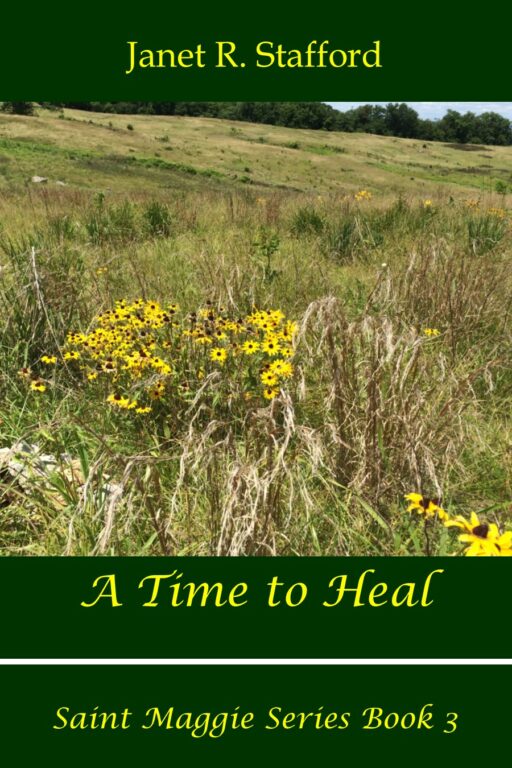
In the books that follow, we find Maggie and family in Gettysburg during the battle in the second book and her daughters choosing compassion over law in the third book.
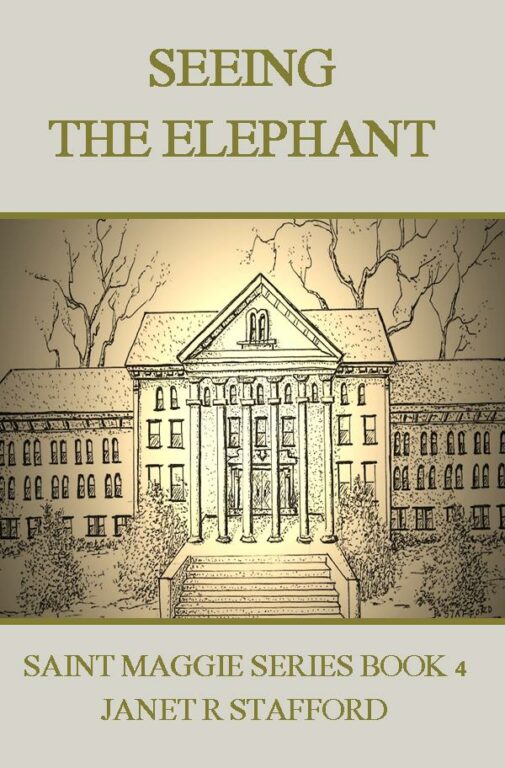
In the fourth both Maggie’s husband Eli struggles with nightmares brought on by his experiences in the war even as he investigates abuses occurring at the local insane asylum.
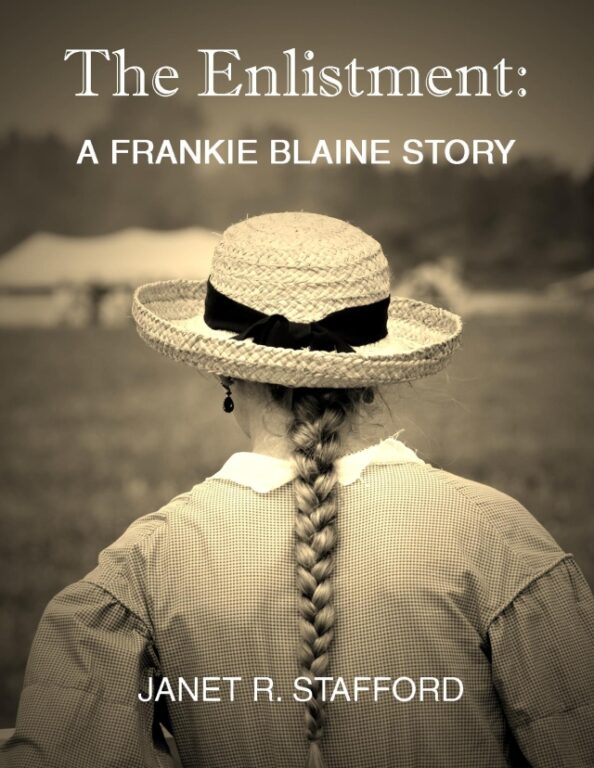
The Enlistment is a novella that focuses on daughter Frankie. She becomes upset because her beau Patrick has gone off to join the army. So, she cuts off her hair, puts on men’s clothing, and goes off to join him with some results she does not expect. Finally, I have two Christmas short stories.
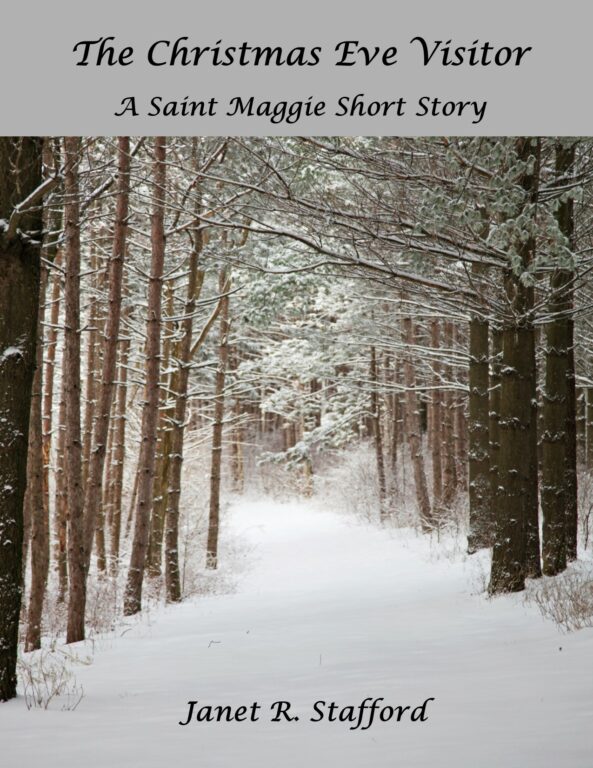
The Christmas Eve Visitor finds the family worried about the three youngest children who are quite ill – only to have a strange peddler turn up at their door who seems to know just what they need.
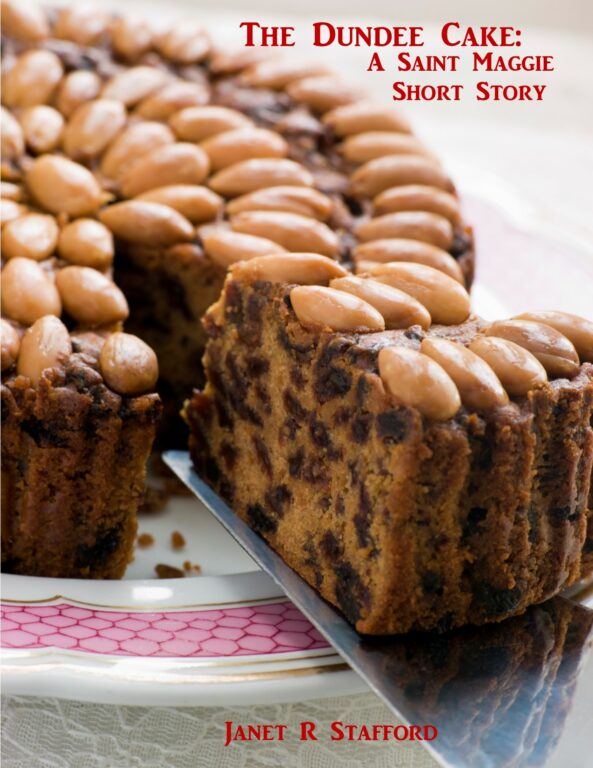
And The Dundee Cake is a Saint Maggie prequel that echoes O. Henry’s The Gift of the Magi. Young widow Maggie Blaine struggles to keep her boarding house going and still celebrate Christmas, when she learns that her new cook and her husband have suffered a disaster.
How has your religious faith influenced your work?
My faith shapes my work a great deal although I try not to hit people over the head with it. Just the same, the values of hope, love, forgiveness, faith, and compassion are present.
Maggie is the most religious character (Emily Johnson runs a close second). Maggie is a Methodist, who can be rather pious, especially in the first book.
That said, her piety is consistent with many women of her time. However, I balance Maggie with Eli, who has questions and doubts and a rather edgy, but he also is on a spiritual journey–perhaps against his will!
I strive to make my characters human by giving them a sense of humor, fits of temper, frustration, and passion. This helps because they usually find themselves combating hatred, bigotry, and violence with love, compassion, and mercy.
The other important thing I try to avoid are pat answers and easy conclusions. I do not want to send a “do this and you’ll be happy and safe 24/7” message.
Because, frankly, in my belief system, just because you have faith in Christ, doesn’t mean life is going to be hunky dory and safe. Actually, it might just be the opposite.
What has been your most rewarding experience since publishing your work?
I think the most rewarding experience happened when I visited a book club in Belvidere, NJ. Now, Belvidere is where the trial was held for the real wayward minister on whom I based the fictional minister in Saint Maggie.
Of course, the group all knew the story of the trial. I happily talked about how I changed some aspects of the story and invented a boarding house for the minister to live in rather than having him rent a room in a home, which felt too claustrophobic.
Then things started getting weird. One person said, “We have a Water Street here, and I think that might have been where the black population of the town lived.”
Several of the other book club members concurred. Then someone else said. “I heard the old newspaper office had an Underground Railroad Station in the basement.” (In the novel there is a hiding place for self-emancipators in a tunnel between the boarding house and Eli’s Gazette.)
More murmurs of agreement swept around the table. I was fascinated, and a little flattered (because I thought they were giving me a bit too much credit for my research). But I knew it was a crazy coincidence.
But then they started talking about which house on the square might have been Maggie’s. At that point I was thinking, “Wait! People, Maggie’s fictional! The boarding house isn’t real!”
But it was really a rewarding experience. It meant the readers had loved my story enough to pay attention to details and try to correlate them with the real-life town.
What advice would you give to authors just starting out?
Write, read, be persistent. You won’t earn a lot of money unless you are incredibly lucky and/or incredibly talented. But write anyway. for the love of story-telling.
Is there anything else you’d like your readers to know about you?
I love rock ‘n’ roll. That includes hard rock and metal. No joke.
When you’re not writing, where can we find you?
At the church because my hours can be irregular!
The other place you can find me is hanging out with the love of my life and occasional collaborator, Dan. We usually come over to Peddler’s Village once a week or every other week.
In the world of social media, someone invited me to be a moderator and help the administrators on a Facebook page for Jack Black and Tenacious D.
Long story. Too long and weird for here. But it’s fun to be there and different from anything else I do. (Ya think?)
What are your favorite books, movies, TV shows?
EM Kaplan’s Josie Tucker Un-Culinary, Un-Cozy Mystery Series.
Jan Karon’s Mitford series (about an Episcopal priest living in the North Carolina mountains). Anne Perry’s Inspector Pitt mysteries. I also love Mark Twain.
What are you working on now?
I’m in the middle of The Good Community, a full-length novel in which Maggie and Emily start a school for the black children in town, whose school on Water Street is in terrible shape.
But when the new school becomes integrated, some people in town take offense, including the powerful industrialist who has taken up residence there and sits on the school board.
I’m not sure how it will come in for a landing yet, but we’re in the air.
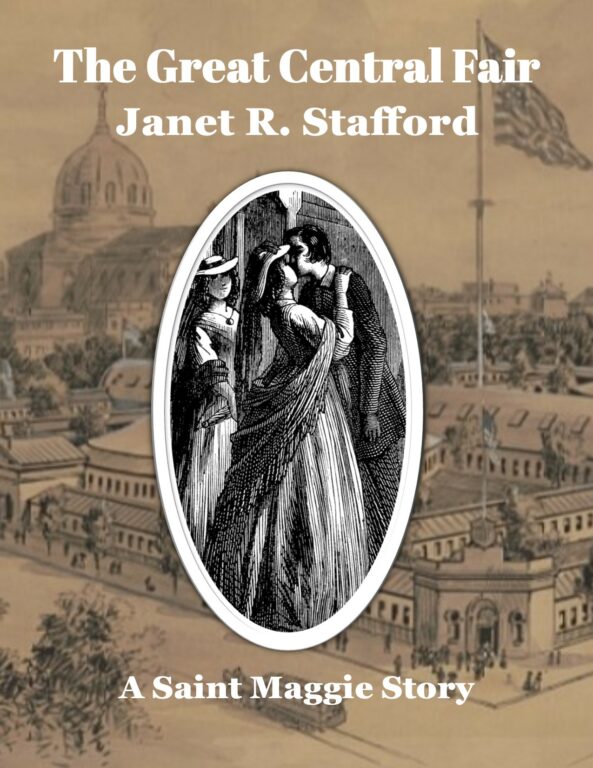
Do you have any new releases coming out?
Yes! I released The Great Central Fair. It’s a romance about Maggie’s daughters and their beaus, and the decisions the two couples make during a visit to the Sanitary Fair in Philadelphia in June 1864.
A Sanitary Fair, by the way, was a fair to raise funds for the Sanitary Commission, a non-governmental group that saw to the health and comfort of Union solders. They held the fairs all over the Union and raised a great deal of money.
Do you have a website/Facebook page?
That and more…
Website: www.squeakingpips.com
Facebook: www.facebook.com/squeakingpips/
Instagram: squeaking_pips_press
Twitter: @JanetRStafford
Where can we find your books?
Squeaking Pips Press, Inc. (my micro-publishing company) www.squeakingpips.com/store
Online at Lulu.com, Amazon, Kindle, Barnes & Noble, and other online distributors.
My books are also in the Lahaska Bookshop, Peddler’s Village, Lahaska, Pa.
You might even find them in other libraries and bookstores. You’ll have to check.
Thank you, Janet, for spending time with us and sharing your story. We wish you continued success and lots of luck!
